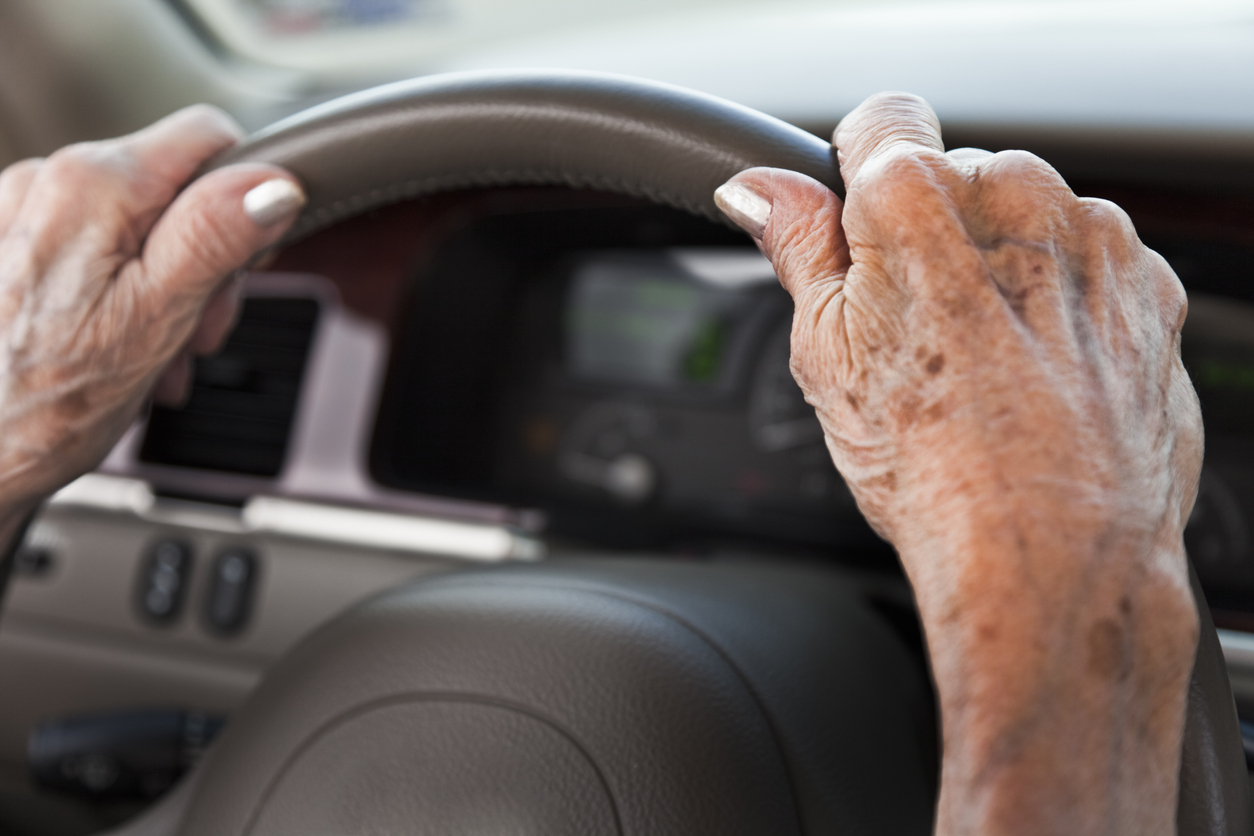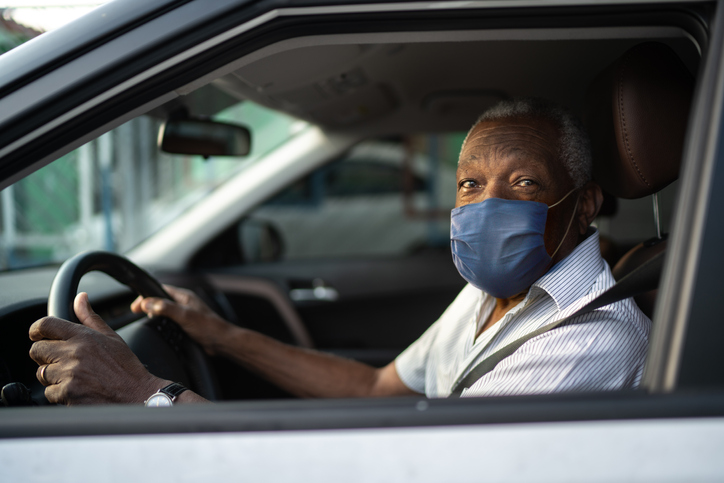When Should Seniors Stop Driving? A Guide

When Should Seniors Stop Driving?
Just because you or your loved ones are getting older, doesn’t mean you need to stop driving immediately. Many seniors are perfectly capable and responsible drivers. However, it’s important not to ignore the common signs of aging that can turn a safe driver into an impaired driver, such as slower reflexes and vision problems that can’t be fixed with glasses.
In 2018, there were more than 45 million licensed drivers age 65 and older in the United States, according to the US Department of Transportation Federal Highway Administration. This marked a 60% increase in older drivers since 2000. Driving helps seniors stay independent, but risks of serious crashes rise as people age. In 2018, more than 250,000 adults 65 and over were treated in emergency departments for crash injuries, while almost 7,700 older adults lost their lives in traffic accidents, reports the CDC. That risk increases over the age of 75.
Read on for some of the warning signs that driving may be getting too risky for you or the seniors in your life, and tips for how families can have the often-difficult conversation with aging loved ones about driving.
How Can Driving Become More Difficult As We Age?
Certain health conditions and physical changes can make driving more difficult for a person of any age, but many of these issues become more common as we get older. New or worsening conditions can affect someone’s vision, hearing, motor skills, strength, coordination, and flexibility. Those changes impact the ability to respond to other drivers, changing road and weather conditions, and other potential hazards. Poor sleep or other issues can lead to fatigue and cognitive difficulties that impact memory, focus, and reaction times. This, in turn, can make drivers less alert and more susceptible to accidents.
Below are some driving-related issues you should discuss with your or your loved one’s doctor to determine if they could make driving unsafe. Ask your doctor about any solutions or modifications you can use to reduce those risks.
Health Conditions That May Affect Driving Abilities
- Dementia or Alzheimer’s: Risks include disorientation, confusion, forgetting driving rules or directions, failure to observe traffic signs and signals, problems with visual-spatial relations, and other issues with focus and memory.
- Stroke: Impairment depends on the severity of the stroke, but physical weakness or loss of coordination as well as impacts on the brain could lead to difficulty physically operating the car or being able to stay mentally focused.
- Parkinson’s disease: Balance and coordination issues, as well as a slower ability to move or react, may make driving hazardous as the disease progresses. Treatments can often improve early and milder symptoms and prolong one’s ability to drive.
- Sleep apnea: Daytime fatigue or drowsiness brought on by sleep apnea can increase the chance of a crash, but treatments are available to correct this condition.
- Diabetes: Well-controlled diabetes is typically not a risk, but poorly controlled diabetes can lead to fatigue, blurred vision, nerve damage in the hands and feet, loss of consciousness, or seizures – all of which can cause major problems with driving. Following a treatment plan and carrying snacks to quickly raise low blood sugar can promote safety.
- Arthritis: Swelling, pain, and stiffness can make steering, braking, acceleration, turning to examine blind spots, and other routine driving tasks difficult or impossible. Medications, physical and occupational therapy, and modifications to the car may help reduce symptoms and make driving easier.
Medications That May Affect Driving Abilities
- Antidepressants
- Antihistamines
- Anxiety medications
- Cough medicines
- Decongestants
- Muscle relaxants
- Pain medications
- Sleep medications
- Tranquilizers
Hearing and Vision Issues With Driving
According to the NIH, hearing loss is common among seniors. In fact, one-third of people over the age of 65 in the United States have some form of age-related hearing loss. Hearing loss can be dangerous for drivers, as it impacts the ability to notice and respond to the horns of other drivers, sirens, railroad crossing signals, and other sounds that are crucial to road awareness. Bringing any hearing-related symptoms to the attention of your or your loved one’s doctor means they can potentially be treated with hearing aids, corrective procedures, or medication.
Many people notice changes in their vision as they get older, requiring stronger eyeglass or contact prescriptions. Certain conditions affecting vision are also increasingly common as we age, including cataracts, glaucoma, and macular degeneration. These can cause issues ranging from partial to total vision loss. Regular eye exams, as well as visits to a doctor if you notice any visual changes, are essential to improving eyesight and assessing if driving is still safe.

Signs It’s Time To Stop Driving
Impaired drivers not only harm themselves, but they also pose a danger to their passengers, other drivers on the road, pedestrians, and property. Here are some clear warning signs that driving has become dangerous – it might be time to put down the car keys and rely on other modes of transportation to maintain a healthy, active life:
- Health conditions clearly affecting physical driving abilities or reaction time
- Problems with concentration, awareness, or mood while driving
- Reaching the age of 85
- Increased accidents or close calls
- Multiple tickets or warnings from police
- Parking-related accidents or side-swiping of other cars
- Running red lights or stop signs and/or stopping at inappropriate times
- Frequently getting lost
- Difficulty seeing or understanding road markers or traffic signals
- Concerns expressed by family members or friends who’ve been passengers
Seniors with mild issues related to aging who only drive in the daytime, in good weather, and on familiar roads may be enough to keep themselves and others safe. Yet, the signs above indicate the need to have a tougher conversation with your loved one. While some seniors recognize the signs and choose to give up driving on their own, many times family members or friends need to step in.
Giving up driving is a difficult transition for many people, and you or your loved one may feel frustrated, angry, embarrassed, or worried about losing independence. Acknowledging these feelings and focusing on benefits like safety, saving money, and increased exercise can help, but a strong support system and a plan for what you or your loved one can do to stay mobile and independent is most important.
What Can Friends And Family Members Do?
For city-dwelling seniors and those with good mobility, the adjustment to no longer driving may be less intense. Being able to walk or take readily accessible transportation to stores, appointments, and friends’ homes means their routine won’t be disrupted. However, the transition may be tougher for others who’ve spent years relying on their car. Luckily, there are things you can do to make this adjustment easier for yourself or your loved one. They include:
- Exploring delivery options for groceries, medications, and meals (if financially viable)
- Shopping online when possible
- Identifying new modes of transportation, including paratransit, mass transit, or senior health services that offer rides
- Asking family and friends for rides to social events, stores, or appointments – and offering to help if you are the still-driving family member or friend of the non-driver
- Planning social gatherings to be held at the home of the non-driver
- Walking to nearby shops, activities, or friends’ homes (when safe)
The importance of social connection and staying active is undeniable, so it’s imperative that seniors who stop driving still stick to a close-to-normal schedule, attend the outings and social events that mean the most to them, and maintain independence in other areas of their lives. If a loved one has recently given up their car keys, try to make sure you and other family members are available to help them – by either coordinating who will drive them, and when, or figuring out alternate modes of transportation. If this isn’t possible due to distance or busy schedules, consider a home caregiver who can help with daily activities and drive your loved one around.
Personal Care is an option at Open Systems Healthcare for those who need assistance to make their daily lives easier. This type of home care is carried out by caregivers who can help around the house and make sure seniors can safely get where they need – and want – to go. Give us a call today at 855-616-2662 if you have any questions about how we can help.